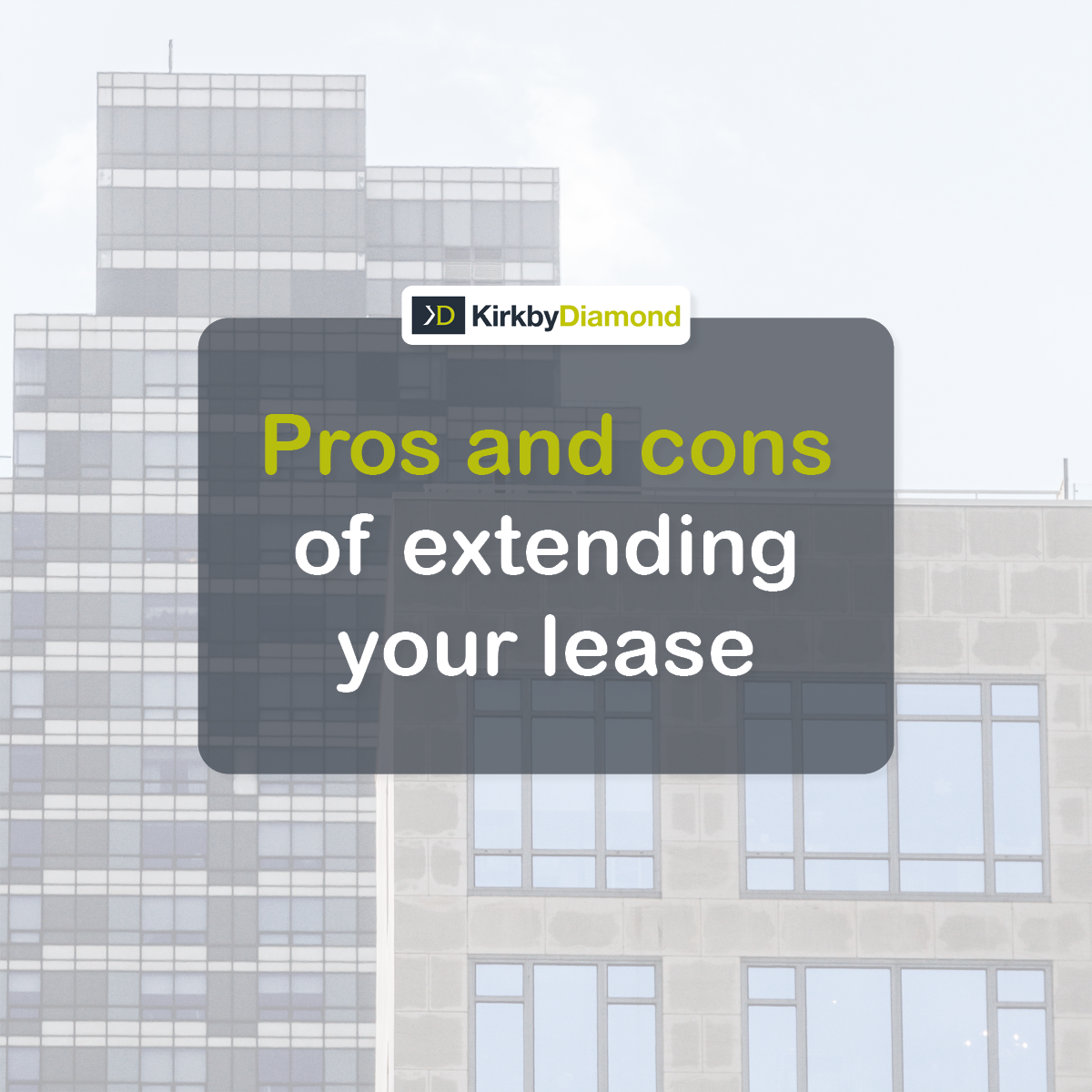
Kirkby Diamond discusses: Pros and cons of extending your lease
November 15, 2021
At Kirkby Diamond we often get asked by leaseholders:
“Why should I extend my lease?”
As valuers, we are at the coal face dealing with leaseholders who do not know their options and we have to advise them accordingly. Here are our thoughts and the pros and cons of extending your lease.

The Pros
Enhance Value
Quite simply, flats with short leases below 80 years are typically worth less, not worthless! In the majority of cases, the properties are deemed unmortgageable which limits the pool of applicants to cash buyers if the property is sold. Where leases are exceptionally short (circa 50 years unexpired), the value of the flat may be as low as 50-60% of the “full” value of the flat with a long lease.
Improves Mortgageability
As touched upon above, flats with short leases cannot often get mortgages. This means that many flat owners are left with an illiquid asset and when they come to remortgage and they cannot secure funds against a property. This is one of the most common reasons why we are instructed by leaseholders to extend their lease.
Remove onerous ground rent liabilities
We have dealt with countless cases where leaseholders have signed up to leases on all sorts of weird and wonderful ground rent arrangements. From doubling ground rents, to rents linked to percentage adjustments on the value of the entire block of flats, we have seen most of them!
Even if a flat has a long lease, an onerous ground rent can halt a sale or stop you getting a mortgage.
As valuers we are seeing rising cases of leaseholders wanting to buy out their ground rents. In this instance Statute does not currently allow a leaseholder to do this, so in most cases, the only way to remove the ground rent is to extend the lease.
It gets that sale over the line
Short leases and onerous ground rents can stop property sales taking place, meaning the sales process has to start again or stop until such time the lease is extended.
Being proactive before a sale commences means that there are no surprises for any parties involved in the transaction and the sale can run smoothly.

The Cons
Time delays
Extending your lease is often a slow process taking many months. Where leaseholders are not proactive, they are often surprised that some lease extensions can take over 6 months just to agree the premium. The knock on effects of this can be linked to sales falling through and leaseholders not being able to remortgage.
Costs
In addition to the lease extension premium, leaseholders will also be expected to pay for reasonable legal and valuation fees on top of the premium. These can be circa £1,500 - £3,000 plus VAT per side depending on how complex the lease structure is. We always recommend that leaseholders factor in around £5,000 for the costs on top of a lease extension.
Stress
In some ways, extending a lease can be as stressful as buying a property. Whilst having good professional advisors can share the burden by negotiating the premium and drafting leases etc, input is still required from leaseholders. Where the other side is a difficult negotiator, this can can add further stress. From personal experience, this can leave leaseholders feeling like they are facing an uphill battle as they may be liable for costs they haven’t factored into their budgeting.
Whilst the above is not an exhaustive list, these are our views on the pros and cons of extending a residential long lease. Kirkby Diamond work closely with both leaseholders and freeholders to ensure the lease extension process runs smoothly. Over the years we have assisted leaseholders with issues surrounding their lease extension, guiding them through the process step by step.
If you are thinking about extending your lease, but don’t know where to start, why not contact Kirkby Diamond’s leasehold advisory team on 01582 738866 or contact Adam.Smylie@kirkbydiamond.co.uk
